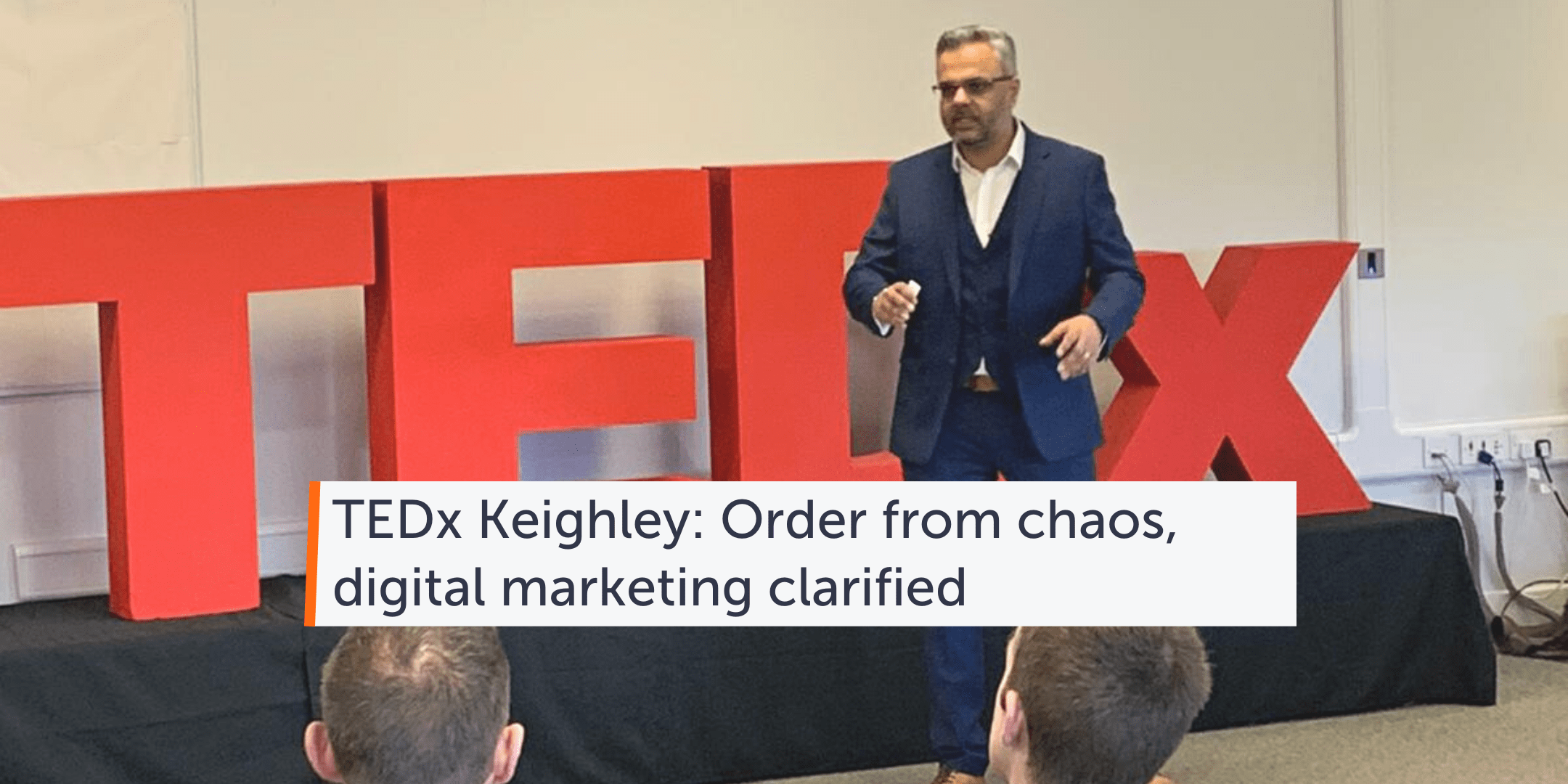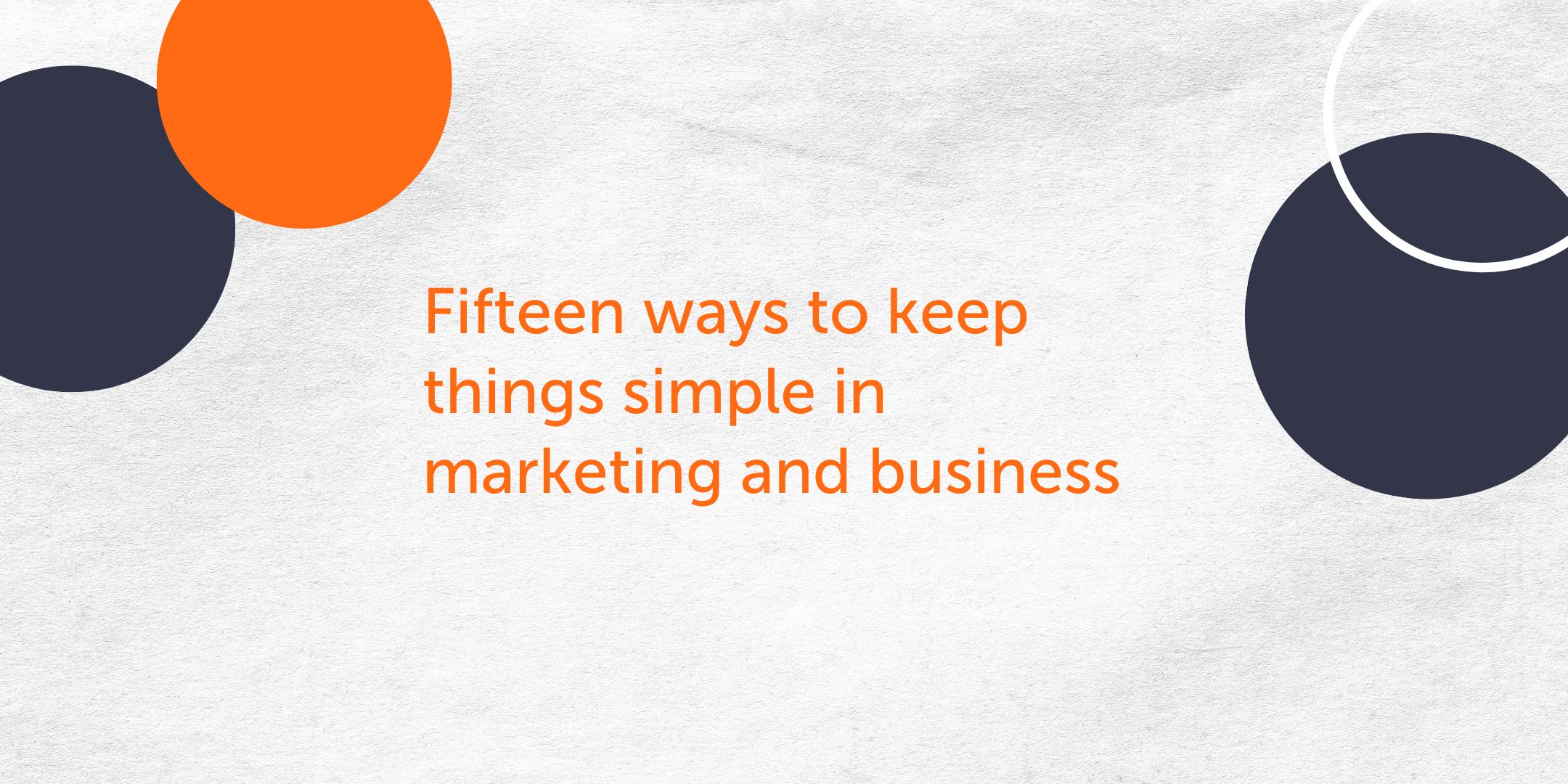10 years, where has the time gone? Reaching the 10-year milestone in business is a natural point to stop and review the way things have gone. So, with that in mind here are 10 lessons I have learned from taking Xpand from a business I started in my home office, to a results driven agency with clients throughout the UK and abroad.
1. Don’t Undersell Yourself
‘Give me a good price because I’ve got loads of work after this and plenty of people I can introduce you to’. If only I was given £1 every time I heard this in the early days!
The sad truth is, I heard this a lot and I fell for it regularly. The majority of the time, I was taken advantage of and never heard back from the client after the work was done. By allowing a client to beat me down on price I was de-valuing my brand (and myself) and allowing Xpand to work with the type of client that we really didn’t want.
I’m not saying you shouldn’t offer good value for money. I’m saying it’s important for whoever you work with to value your skill set and experience. I learned this the hard way.
2. Value Specialist Advice, Even If It Costs More
In the early days of Xpand, cash flow was pretty limited (as you would expect with any new start business) so I chose to work with an accountant that offered the lowest price. Big mistake. He wasn’t bad at his job; he just didn’t have the experience I needed in terms of advice in my sector. I made the mistake of choosing to go with him based on price rather than experience and knowledge and looking back, I can say it probably slowed down my growth opportunities.
The lesson learned from this was to make sure whomever I surround myself with has to be the right fit for the company.
3. Have A Mentor Or Business Coach
In the business-networking world, you’re guaranteed to meet plenty of business coaches. When I first started networking in 2007, in the arrogance of my mid-20’s, I didn’t quite understand why someone would need a business coach. As a marketing consultant with a degree in Business Management, I thought I knew it all. How wrong I was.
I first started working with a business coach in 2012 and within only a few sessions I was already benefitting from his advice. Though some of it was pretty obvious advice, sometimes you just need some clarity, which a business coach can give you. Since then I’ve been working closely with my coach as I’ve learned the value in having a fresh pair of eyes to provide a different perspective on a situation.
If you haven’t got a business coach or mentor, I would recommend you get one quickly. I’m more than happy to recommend my coach. I’ve recommended him to numerous people over the years and they haven’t looked back!
4. Some Of Your Best Advisors Are Right Under Your Nose
While on the subject of being given advice, I learned that some of the best advisors are right under your nose.
I started employing in 2012 and within 6 months I went from being a one-man business to managing a team of 4. This lead to a significant change in the dynamic of Xpand. Before employing, my decisions only impacted me internally. I quickly learned that any decisions I made from there on would not only affect me but also my team.
After a few months, I started asking the team for advice on specific matters involving processes, which proved to be effective. Sometimes as a business owner, it can feel like you have to have all the solutions to every problem. However, when you build an effective team they can provide input from angles that you may not have considered. At Xpand, I now have an open policy where each member of the team can offer their input to ultimately get the best results for our clients.
5. Don’t Try To Do Everything Yourself
This point relates back to point three. My business coach at the time told me to stop doing my own bookkeeping. ‘But outsourcing to a bookkeeper is going to increase my overheads!’ was my response. I was right, it did increase my overhead, however, it also cleared around four or five hours (minimum) of my time per month, which allowed me to use that time to work on something else, something I was better at.
Since taking on board this advice, I’ve stopped trying to do every task myself. I stick to what I’m good at and let the professionals do what they’re good at. It does mean my overheads increase, but in the long run, it makes me more efficient which ultimately results in more profitability for the company.
As a business owner, it’s imperative that you recognise your strengths and mercilessly outsource your weaknesses, this allows you to concentrate more on the tasks that you enjoy and are good at, which ultimately allows you to scale and grow your business.
6. Don’t Take Your Own Knowledge For Granted
As I’m immersed in the world of marketing 24/7, there is a lot of information I see to be foundation knowledge. When I’m in meetings with prospective clients there are a lot of concepts I need to talk through.
In the past, I’ve made the mistake of expecting people to have certain levels of foundation knowledge, just because I’ve known it for so long. The fact is that not everyone has worked in marketing for over 10 years and it’s easy to forget this. It’s easy to make things sound too complicated if someone is not well versed with your expertise. What may seem simple and common knowledge to you (including industry jargon) may be something that is totally alien to your client.
Since realising this, I have a fixed format that I work to that involves gauging a client’s knowledge of marketing and ensuring I am covering the foundation information to make sure they fully understand before I go any further.
7. Don’t Burn Yourself Out
I love my job. As a business owner, sometimes my work becomes my hobby and my whole life merges into one big blur of meetings and projects. At first, I thought this was a great way to operate as it demonstrated my passion for what I do. However, a few years ago it started getting a bit too much.
I got to a stage where I was regularly getting into work at 7:30am, working through lunch and not getting home until 7:30pm. The flat out 12 hour days were not doing me a lot of good and this fatigue started reflecting in the company.
I learned that it was important to have breaks as my productivity was being affected massively. I still find myself occasionally slipping into habits of long working hours but as soon as I recognise it, I make sure I slow down and take the time to enjoy the moment rather than getting myself wound up with all the tasks at hand.
8. Be Careful What You Say About Competing Suppliers
This is a sensitive one and I wasn’t sure whether I should add it to this blog, but here it is. Sometimes there’s a fine line between trying to give the best advice to your clients and not coming across as someone who will do anything to win business.
Last year I was asked to look into doing some work on a website we had previously built. Another agency in Southern England was working on limited elements of content, which involved SEO. As part of my assessment, I outlined that the current work being done by the other agency was missing some fundamental components, which meant that the client was not getting the full benefit of what he was paying for.
My client had a very good relationship with this agency and took offence at my advice. From my point of view, I was trying to advise the client based on what was best for them. The other agency are very accomplished in the client’s sector and I certainly wasn’t trying to phase them out of the equation but being an agency that also offers SEO, I felt it my duty to highlight the issues we spotted. In hindsight, I can see how it would have felt like I was bashing the competition to win business, but this certainly wasn’t the case.
The mistake I made was in the way I communicated the information. I did it with the client’s best interests at heart but didn’t communicate what I was trying to say correctly. The lesson I learned was to take more time to articulate my point when it involves working with suppliers that offer similar services to you. I don’t believe in using underhand techniques to win business and I was frustrated with myself that that’s how my message was perceived. Since this situation, I have been a lot more specific about the way I communicate with clients in similar circumstances. A very important lesson learned.
9. Don’t Apply The Same Selling Style To Everyone
Everyone is different. A communication style that works for one person does not necessarily work for another person. Two years ago I was introduced to DiSC profiling. This is a form of psychometric test that outlines a person’s behavioural characteristics.
In the business world, knowledge of people’s DiSC profiles can help you understand the best way to communicate. My profile is iD (influencer/ dominance), which means I am an optimistic, collaborative and talkative person with a focus on results. If I were communicating with another iD, I’d know to make sure to focus in on the results aspect and building a relationship. On the other hand, if I was in a meeting with a C (conscientious) personality, I would make sure to focus in on the details behind what I am doing, as this is the kind of information they look for.
For anyone new to DiSC profiling, this probably doesn’t mean much and I would recommend looking into it. My knowledge of DiSC has allowed me to understand people in much more depth, which has assisted me in refining my selling skills as well as my people management skills. One style does not apply to everyone.
10. Highlight Your Vision With Your Team Regularly

In your day-to-day activity, it’s easy to lose sight of the bigger picture. As an individual, it’s easy for me to remind myself where the company is going. However, your team are not going to remember it as easily as it’s your vision, not theirs.
In 2014, I started presenting to my team on a quarterly basis. The presentation structure generally involves outlining where we have been in the previous quarter, how we were performing and any future plans with a reminder of the company vision and how we’re going to achieve it.
By doing this, I found it to be a great opportunity to get the team’s feedback and for everyone to re-align with our core goal. The regularity of the sessions gives a great opportunity for the whole team to celebrate successes and remember where we are all going. This was a very important lesson for me, as success cannot be achieved without a team that has a shared goal.
So there they are folks, 10 lessons I have learned over 10 years. As mentioned, these are not in any particular order and there are certainly a lot more that I could write about but that would take us beyond our theme of ‘10’ to go in line with our 10 year birthday. I hope you’ve enjoyed reading this blog as much as I’ve enjoyed writing it!


